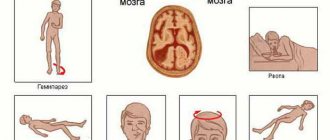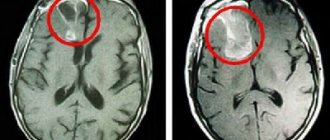Psychological trauma is a broad concept that is used in modern psychology and psychotherapy. Trauma occurs as a result of stress that is excessive for the psyche. The result of psychological trauma is the emergence of various pathological conditions, including depressive and anxious ones.
The patient feels helpless: he no longer feels safe, there is a feeling that he can no longer control his life and be confident in the future. Both psychological and physical (somatic) symptoms may occur. Psychological ones include tension, anxiety, obsessive thoughts about what happened, which are difficult to get rid of, tearfulness, apathy, desire for solitude or, on the contrary, fear of being alone, and others. Psychological symptoms vary greatly depending on personality type and manifest differently in different patients.
If the patient has a tendency to psychosomatic disorders or somatization, somatic symptoms are added: tremor, chronic fatigue, insomnia, discomfort in the heart, shortness of breath, coldness or numbness of the extremities, unsteadiness of gait, “lump in the throat,” abdominal pain and others.
Modern psychotherapy offers complete and high-quality treatment of such pathological conditions. All you need to restore your psyche is to consult a specialist and undergo a full course of treatment.
At CELT you can get advice from a psychiatrist.
- Appointment with a psychiatrist with an extended interview, psychotherapy session - 4,500
Make an appointment
It is important to remember that a traumatized psyche is very fragile, and, therefore, only a specialist can solve psycho-emotional problems. Dealing with trauma on your own increases the risk of retraumatization as a result of constant reminders of the circumstances of the trauma.
Causes, prerequisites and risk factors
It is generally accepted that psychological trauma always happens suddenly. It occurs at a moment when a person is completely unprepared for a shocking event. However, this is not entirely true - it would seem that the relatives of a patient suffering from cancer knew about the advanced pathological process, knew about the stage of the disease and that the doctors did everything they could. However, after their loved one passes away, they may experience a bereavement reaction similar to that of someone who has lost their loved one suddenly, such as in a car accident.
There are conditions that lead to psychological trauma with a high degree of probability:
- The traumatic event happened unexpectedly, nothing indicated such a development of events.
- There was no way to prevent the traumatic event. Or there was such an opportunity, but the patient did not take advantage of it.
- The event was marked by cruelty or injustice.
- There are prerequisites from childhood: the same traumatic event happened many years ago and was not worked through with a specialist.
- The person had an ambiguous relationship with the victim (for example, frequent quarrels or feelings of guilt).
Psychological trauma can be anything - loss, an episode of violence, an accident, an illness, a severe danger to life and health. A traumatic episode can happen to the patient himself, to his relatives or friends, or in front of his eyes.
Long-term negative effects on the psyche can also cause psychological trauma - for example, living in a family with frequent episodes of violence, proximity to criminals or inappropriate people, or a long-term illness. For “sensitive” people with a labile psyche, even a seemingly ordinary event can in some cases lead to trauma, which in such cases is called “adjustment disorder”, but, nevertheless, requires the help of a specialist. Such reasons may be moving to a new city, changing jobs with increased workload and growing demands and competition; even such a joyful event as the appearance of a child in the family (even a beloved and long-awaited one!) can serve as a “trigger” for the development of adaptation disorder.
The most common events that lead to psychological trauma are:
- Domestic injuries, sports injuries.
- Previous surgical operations, especially if the intervention occurred in childhood.
- Death of a loved one.
- Man-made and man-made disasters. Car accidents, plane crashes.
- A breakup in a relationship that meant a lot.
- A humiliating experience, severe disappointment in yourself or others.
You need to understand that the above situations will not lead to psychological trauma for all people. There are some risk factors that increase vulnerability to emotional distress. For some people, a seemingly insignificant event can lead to injury, while others easily tolerate even a long stay in a traumatic environment.
An increased risk is observed in people who are under constant stress. Also at risk are people with childhood traumas, and anyone who has suffered from episodes of depression or anxiety disorder. In such people it is easy to provoke psychological trauma and even easier – re-traumatization. Some patients who are diagnosed with “psychotrauma” have in the past shown a certain predisposition to overreacting - an innate “vulnerability to stress,” otherwise called “emotional lability” by specialists.
Types of psychological trauma
There are several types of psychological trauma. The first classification divides injuries into shock, acute and chronic.
Shock trauma is characterized by short-term duration. It always appears spontaneously, as a result of threatening events in the life of an individual and his loved ones.
Acute psychological trauma has a short-term effect on the psyche. Its appearance is associated with previous events, such as humiliation, breakup of relationships.
Psychological, chronic trauma is caused by a negative lingering impact on the psyche, does not have a pronounced form and can last for decades. For example, this is a childhood in a dysfunctional family or a marriage that causes psychological discomfort or physical harm.
The second classification identifies the following psychotraumas:
- trauma of loss;
— existential;
— traumas of one’s own mistakes.
- relationship trauma.
Existential trauma is a belief in a mortal threat or that something threatens a person and his loved ones. A characteristic symptom is fear of death. The individual in this situation is faced with a choice - to withdraw into himself or become stronger.
The trauma of loss refers to the fear of loneliness.
Relationship trauma appears, for example, after the betrayal of a loved one, and in this case, difficulties arise in the future with trust in people.
The trauma of a mistake is shame for what you have done or a feeling of guilt.
Symptoms and signs
Different people react differently to emotional pressure. Therefore, there is no single true and correct reaction to stress. The clinical picture varies greatly depending on the circumstances of the injury and the personal characteristics of the patient.
It is important to understand that there is no single correct reaction; all unpleasant emotions that arise after an injury are normal, this is the body’s individual response to stress.
The following symptoms are identified in the emotional sphere:
- Loss of faith in yourself or in the justice of the world around you.
- Shock and rejection.
- Attempts to isolate yourself from others.
- Rage, anger, irritation.
- Unmotivated mood swings.
- Feelings of guilt, shame, an attempt to take the blame upon yourself.
- Confusion.
- Decreased cognitive function, inattention, impaired concentration.
- Unmotivated fear and anxiety.
Psychological trauma also has physical manifestations:
- Insomnia, sleep disturbance. Frequent nightmares. Increased drowsiness is possible.
- Rapid heartbeat, discomfort in the heart area.
- Pain of varying intensity and localization, not associated with existing somatic diseases.
- Chronic fatigue, fatigue even from light activities.
- Constant tension in the muscles.
- Tremor, sloppiness, lack of coordination.
All these symptoms last from several days to several months. They gradually subside as the trauma is worked through. The thing about emotional trauma is that even when everything seems to have passed, unpleasant memories can resurface and cause retraumatization.
It is important for patients and their loved ones to understand that grief is a natural reaction to psychological trauma. You need to allow yourself to experience unpleasant feelings and stop blaming yourself. The same needs to be done for your loved ones; the support of others is very important during treatment.
I don’t trust anyone: what is rejection trauma and how to get rid of it
The emotional coldness of parents traumatizes the child. In adulthood, this trauma prevents a person from building close relationships with others. People with the trauma of rejection told “Snob” what they had to go through in childhood and how their distrust of the world ruins their lives, and psychologists told them how to live through negative feelings, forgive their parents and learn to love in order to heal.
“I don’t know how to build healthy relationships with people”: A Nna, 31 years old
My dad is neurotic and tough, and my mom is withdrawn and emotionally cold. They both had difficult relationships with their parents. My parents tyrannized and humiliated my dad until he was 20 years old. My mother did not know affection and love at all: her parents drank and fought, her mother beat her. When Mom was eight years old, her mother was stabbed to death in a drunken brawl. My grandfather got married, and my stepmother also beat my mother. Then my mother lived with her aunts for a long time and was left to her own devices. I grew up under hyper control. My dad beat me as punishment for my misdeeds, but my mom never stood up for me. A couple of times I ran away from home, then came back and got more. I tried to be a good girl, until at some point I didn’t care whether I was punished or not. I just did what I thought was necessary and got paid for it. This didn't stop me. As an adult, I moved away from my parents. They had slightly outgrown their own traumas, and at a distance I received more warmth from them. Pain and resentment towards my parents still lived in my soul, but over time these feelings were repressed: whenever I was rejected or criticized, I understood that I should be unpleasant, but I did not feel anything. Two and a half years ago I started having panic attacks and went to see a psychologist. We began to delve into my past and work through trauma. On instructions from the psychologist, I decided to talk to my parents. I don’t remember exactly how I started the conversation. She said that our relationship was not easy and it was extremely important for me to hear from them that they love me. The parents said this and cried a little. I felt better for a while: I walked around joyful for a month or two, and then everything returned to normal. The resentment has not gone away. Now I hardly communicate with my parents: I call my mother from time to time, but I haven’t come to my parents’ house for a long time. I don't know how to build normal healthy relationships with people. Their warm attitude towards me scares me. I don’t trust anyone, I think that they want to deceive me or are simply treating me well out of politeness, and I just as politely keep my distance, not telling anyone anything about myself. I stopped talking about my feelings with my husband because it was useless. Any marriage, in my opinion, is doomed to the fading of love and tenderness in it. I'm disappointed in a relationship and am not looking for one. When I recently fell in love, I simply pushed away the feelings as unnecessary, realizing that everything would end and I would be hurt. It's better for me to be hurt now than later, when everything goes too far. Now I’m going through a transition period: I’m learning to open up and trust people again, but this is very difficult for me. Behind the trauma of rejection lies a deep lack of love, but without experiencing the emotions that accompanied this trauma, it is impossible to heal. This is not deliverance, but a new experience. And I'm in the process.
Irina Kutyanova, family psychologist:
Anna's story clearly shows a negative family scenario, where abuse and lack of love are repeated from generation to generation. An emotionally cold mother does not give enough warmth and love to her child, and already in adulthood, in some stressful situations (a quarrel with a partner, criticism from colleagues, etc.), the trauma of rejection is activated. Gradually the person comes to the conclusion: “It’s not me that you don’t need, it’s you that I don’t need.” He, fearing pain and disappointment, nips positive feelings towards other people in the bud and does not believe in the sincerity of such feelings towards himself. Although Anna understands that her parents were simply not taught to love by their own parents and they raised her as best they could, she cannot forgive them, and therefore, free herself. You need to live through your negative emotions towards your parents, accept part of their experience and close the situation for yourself. This can be done either in a group or alone, under the supervision of a specialist, using, for example, the “empty chair” technique. You need to imagine that the person who offended you is sitting on a chair in front of you, and express to him all your grievances. Then sit on a chair and respond to these grievances from the opponent’s position, playing his role. In this way, the dialogue is reconstructed and the deepest and most taboo feelings are worked out. Often, due to overwhelming emotions, it is difficult for a person to express his thoughts. In this case, you can write down all your grievances in a letter (you don’t even need to send it). It is important that the letter ends with forgiveness. An insult, even a just one, destroys the one who is offended. Unprocessed negative feelings that a person accumulates within himself and does not want to let go of can develop into psychosomatic diseases. Striving for forgiveness, a person should think first of all about himself and his health. A person with the trauma of rejection does not know how to love. In order to unfreeze this feeling and cultivate it in yourself, you need to selflessly do good deeds. You can start small: for example, say a kind word to a passerby, help an elderly neighbor carry a heavy bag. You can become a volunteer at a shelter. When a person does something selflessly and receives sincere gratitude and positive emotions in return, he gradually learns to love and fills himself with this love.
“I’m always afraid that they’ll drive me away and call me worthless”: Olga, 35 years old
Since childhood, I have felt useless and unimportant. When my father came home from work, he immediately went for a walk with me. My mother later said that I often cried, screamed and disturbed his relatives, with whom we lived, and therefore he walked with me a lot. I grew up as a very active child, always gathering children from nearby yards around me. At the age of four, I was already left with my younger sister. At the same time, I constantly heard from my parents: “don’t bother me,” “be quiet,” “move away,” or “do something already.” At the age of five, my parents threatened to send me to an orphanage as punishment for some offense. In the evening, my father put a fur coat on me and said: “We have another girl, but we don’t need this one. We will send you to an orphanage." The mother sat next to the younger sister to confirm his words. I was very scared, asked for forgiveness and promised to be good and obedient. I was active in school and participated in everything I could until they introduced the experimental curriculum. I was in the sixth grade, and the teachers decided that our class could not cope, they considered it lagging behind. This hit my mother's pride, and she transferred me to another class. My new classmates did not accept me: for a couple of years they reminded me that I was from a lagging class and that’s where I belonged, although my academic performance was normal. At the same time, my former classmates rejected me. One of them asked me why I moved to another class. I answered the same thing that the teachers said: “The class is weak, they won’t cope with the program” - and they turned away from me. I was left alone, without friends. I really wanted communication, and I tried in every possible way to earn it. I adjusted to others: with the very smart ones I pretended to be a nerd, with the less intelligent ones I was a blast. If she managed to make friends with someone, she behaved in a way that was convenient for that person, afraid of being left alone again. There was no support from my parents - my feelings never bothered them. They never said they loved me, they never hugged me. In my family it was generally not customary to talk about feelings. I only had to bring good grades and not think about anything else. At the same time, they always told me that I don’t know how to do anything, I can’t do anything, I’m not capable of anything. My mother said that no one would need me and no one would love me. She was often told that such an energetic girl should be sent, for example, to dancing (I was not against it, but who was interested in my desires?), but she perceived it differently: she was being taught how to curb a child who was too much, so I had to become unnoticeable. My mother was always ashamed of me, and these conversations about me were unbearable for her. If suddenly they told her something bad about me or I did something that she didn’t like (and she didn’t like 95% of what I do), she said that it would be better if she killed me in the womb and that she cursed the day my birth. This was often accompanied by beatings, punishments (for example, a month without walking) and prolonged neglect. My father did not intervene or protect me. He always told me to be patient and be quiet. After some time, my parents separated, and my father was almost gone from my life. One day, when my mother brought me up, I asked: “Did you even want me?” She laughed and replied, “No. Your dad and I were just fucking under the fence.” In adult life, all this resulted in the fact that it is very difficult for me to enter into relationships with people - this applies to work, friendships, and personal relationships. I am looking for someone who will love and accept me, and I am always afraid that they will drive me away and say that I am worthless. I am waiting for an assessment, confirmation that I can be/live, that they will tell me: “You are needed, you are not in the way, you suit me.” I always think I'm not doing enough or not doing well enough. Previously, I could not take and demand my own at all, or enter into conflict. I was scared to express my opinion, because as a child I heard from my mother: “Who are you? You have to listen to others who are more important, smarter and better.” I could tolerate dissatisfaction for a long time, and then it turned into hysterics. Previously, I fell for any man who looked at me, and I was taken advantage of. Once, in an attempt to escape from my mother, I almost got married. This man and I constantly argued, as usually happens in codependent couples. He was drinking. Due to a coincidence, the wedding had to be cancelled. In the end, fortunately, we separated. Now I just avoid relationships. Now I live with my mother, but we don’t communicate. Father doesn't call. Once every six months I drop by for five minutes for tea. We don’t really talk: he doesn’t need the details of my life, and I gradually stop looking for his care and protection. A person who has had a lot of abuse in his life believes for a long time in his uselessness and worthlessness. But when I decided to work on this, I began to meet people who showed me that they needed me and did not interfere, and one of them led me to a psychologist. Now, in addition to psychotherapy, I engage in spiritual practices and receive psychological education. I have no illusion that I will forever get rid of the trauma of rejection. It is too deep in me and, I think, happened in the perinatal period. I am glad that I can track it, I know how it manifests itself. I learned to live with it and give people the right to choose not me and not take it personally. I learned to say to myself: “I am always with you, I love you, I need you, you are the most precious thing I have, and I will not leave you.”
Elena Shokhina, family psychologist:
Rejection manifests itself as the parent's insensitivity to the child's emotional needs. It can be obvious, as in Olga’s story, or hidden. Often rejection is passed down from generation to generation as a form of interaction. For example, in the post-war years, parents had no time to tell their children that they were needed and loved. Growing up, the children perceived this as the norm and unconsciously treated their children the same way. Olga's story is very traumatic - she was rejected by both parents: her mother was more aggressive, used physical and emotional violence, while her father preferred not to interfere. What had a stronger impact on Olga is another question, because the girl takes her father’s behavior as a model for a man’s attitude towards herself. Perhaps Olga will be looking for a man or has already tried to build a relationship with a man who ignored her, like her father. Olga's father and mother fueled the common childhood fear of being a child disliked by her parents, threatening to send her to an orphanage. And she developed a defense mechanism: “If the world doesn’t need me as I am, I will be what others want me to be.” This is victim behavior. That is, the trauma split the child’s personality. The task of the psychologist is to collect this personality: to help that little Olya with her desires and needs to grow - to live out her desires and become her own support. In addition to rejection, Olga was also faced with parentification - a situation when parents force a child to grow up early and shift their responsibilities to him. In general, four to five years is a landmark age for the formation of a child’s psyche and the future fate of a person. A favorable family system can reveal a child’s potential and become a good springboard in life, while an unfavorable one can cripple him. It is almost impossible to work through such an injury on your own. One of the functions of a parent is to give the child basic trust in the world, the feeling that he is loved and that everything will work out for him. A child deprived of this, growing up, does not know what he is capable of and what he can do. Therefore, this will require long and painstaking work with a psychologist. His task is to help an adult accept everything that happened in his childhood and let go of the resentment that burns a colossal amount of internal energy and does not allow a person to move on. The psychologist will also help the person express his aggressive emotions. When a child was hurt and scared, he could not express it to his parents. But now, having become an adult, he not only can, but must, throw out the emotions that are destroying him from the inside, and then tell his inner child: “No matter what happens, I am with you. I love you and will always support you." Which is what Olga does.
“I used to put my mother above myself, my husband and children”: Anna, 34 years old
My mother raised me alone. While pregnant with me, she freaked out and left my father, but he did not return her. His mother quickly found him a young bride and convinced him that I was “fun.” I was born in July, and my father got married in October of the same year. Mom had many friends who often came to visit. I always enjoyed the crowd of people in the house, I really liked communicating with people - I could chat with anyone. I was a very active child. My mother convinced me that I was careless, clumsy, sloppy and inattentive. She constantly used my cousin as an example. For example, that she wears things carefully, but on me things literally burn, I quickly wear them out. There were dark days when I did something my mother didn’t like: I snapped back at her criticism or broke something. She never hit me, but she screamed so hard that the walls shook. Sometimes she threatened to send me to an orphanage or said that she would get sick from my behavior and I would definitely end up there. If at that moment one of her friends called her or guests came, she immediately changed her tone and became joyful. I hoped that she had moved away, but when we were alone, my mother usually spoke to me again through clenched teeth in an orderly tone, harshly and firmly, or she could ignore me for a long time and remain silent. I tried to resolve the situation, to please my mother, but it was all useless. As a teenager, I didn’t even want to go home on days like this. But I was afraid for her health, afraid of losing her, and therefore I didn’t make her worry and always came back. (To this day, if I’m going somewhere, I have to call her back to say I got there, even if it’s to the doctor or to work.) My mother took great care of me, and I had a fear that only the two of us would survive, even though my mother’s relatives, to whom we traveled often, we were loved and accepted. At the same time, I never doubted that my mother loved me. I don’t remember that she said it directly, but I knew that she loved me. At school I had a difficult relationship with the class. I didn’t want to be an outcast, but I also didn’t want to adapt to the leaders, so I hung out alone, taking new people under my wing so as not to be alone. I had one friend who ruined my life throughout ten years of school. I was afraid to be alone and talked with her for a long time, until in the seventh grade she set me up. Then I realized that the world is cruel and you can’t trust anyone. Since then I trust no one and suspect everyone. I don't even trust my husband. If he leaves for someone else, it will be a blow, I will be crushed, but I will not be surprised. There was a time when I adjusted to people, but now I’ve become straighter. Many people appreciate me for this quality. About four years ago I began to psychologically separate from my mother, with whom I continue to live under the same roof. Only at the age of 30 did I realize that considering my mother more important than my husband, children and myself is not normal. Previously, I was ready to move mountains for the sake of her good mood. Just then my mother began an open conflict with my husband. She turned all the facts in her favor, and I began to think. I had quite a long period of anger towards my mother. I blamed her for everything, it was even scary that I could think so badly about her. The feeling of guilt for these thoughts was replaced by even greater embitterment because I forbade myself to think like that. I read a lot of articles about separation, saw pictures from my life and again became angry with my mother. Then, after some time, I suddenly realized that at that moment she was giving me everything she had, and she did not behave like that with me out of malice. She just raised me alone, and she didn’t have time to dive into psychology. I was able to look at our relationship from the outside. Later, I looked at myself as a mother and analyzed my mistakes. I learned that I, like my children, have attention deficit hyperactivity disorder (ADHD). It became easier for me to accept my imperfections and not scold my children for the same manifestations of ADHD. They, just like I once did, drop, spill or break something, are easily distracted and do not notice the passage of time. I'm glad that my children know exactly what they want and are not afraid to say what they think. I don’t try to manipulate them, ignoring them, cursing and getting angry for five to ten minutes, then we make up. I learned to listen to myself: if there is a stone in my heart, it means I’m doing something wrong and I need to stop. I don’t consider myself an ideal mother; I know that my children will find something to complain about to their psychologists. But the main thing for me is that I do my best and am honest with them. After working through my trauma, I realized that all people are different and they do not have to meet my expectations. I simply separated my mother from myself: here is my reaction and my feelings, and there are my mother’s. I have no right to prevent her from reacting the way she wants. She is an adult and is responsible for herself. I will be responsible for myself and my children. Mom is old and can no longer change her usual patterns of behavior, so I have to maneuver. It’s difficult with her, of course. She has lost all her friends and requires me to immerse myself in her problems so that I communicate only with her. She still manipulates me, depriving me of communication. If earlier I tried to please, to improve relationships, now I allow her to enjoy what she has created for herself. Now she is the first to return to contact with me, and these attacks of hers happen less and less often.
Zulfiya Ismagulova, family psychologist:
The trauma of rejection most often develops before the age of six; exceptions are rare. In some cases, even when the child is still in the womb: for example, when the mother is thinking about abortion. The earlier this injury is formed, the more difficult it is to heal. Some people have an intrinsic predisposition to this injury, depending on their temperament, genetics, and prenatal history. The presence or absence of this predisposition can be determined by passing the “rejection questionnaire.” Signs of rejection trauma are distrust of the world, fear of intimacy, dissatisfaction with oneself, denial of one’s needs and self-worth, feelings of inferiority, erased personal boundaries, inability to defend one’s opinion, feelings of shame, intrapersonal conflicts and fear of separation from parents. A parent's job is to meet their child's need for security, affection, and intimacy. After all, the child’s attitude towards the world will depend on this. Anna's father left her. Her mother was emotionally unstable, anxious and unpredictable. Anna did not know what to expect from her mother, and therefore from the world, because the child’s world is his parents. In the family, the child develops certain beliefs. Since childhood, Anna was convinced that she was careless, that she could only survive by merging with her mother, that the world could not be trusted. The trauma of rejection is usually triggered only for a significant person who is afraid to lose. “If I’m in a close relationship, the person will recognize the real me and he won’t like me. Therefore, I will avoid close relationships or choose men who do not need a serious relationship.” Our psyche always strives for stability; for it, this scheme is simpler. A psychologist will help you change it in a safe environment, like a healthy adult to whom you can open up without fear of abandonment. A traumatized child rejects that part of himself that his parents do not recognize. To regain integrity, it is necessary to emotionally separate from the parent, which is what Anna did. Some people believe that separating means telling your parents how bad they were and running away from them. But we are talking specifically about emotional separation, when you need to figure out where your feelings are and where others are, and differentiate between them. Here I advise you to read the books by psychologists Lindsey Gibson “Adult Children of Emotionally Immature Parents” and Jeffrey Young “Get Out of the Vicious Circle! How to leave problems in the past and let happiness into your life.” Anna understood and accepted that her mother could not be changed. During therapy, many begin to transfer their feelings to their parents: “Why did you treat me like that?” But what’s important here is not “why,” but “how I myself will relate to my parents’ behavior.” Usually the separation process is accompanied by anger and guilt, which also need to be worked through and released. Anna, we must give her credit, did a lot of work on separation and self-acceptance and allowed herself to be imperfect.
Our doctors
Bogdanova Natalia Ivanovna
Psychiatrist, psychotherapist
19 years of experience
Make an appointment
Seyku Yuri Viktorovich
Doctor - psychiatrist, candidate of medical sciences, doctor of the highest category
Experience 46 years
Make an appointment
Lastovkina Valeria Valerievna
Psychiatrist
3 years experience
Make an appointment
Reasons to see a doctor
Recovery may take some time. The amount of time is individual and depends only on the personal characteristics of the patient. There are cases in which you cannot cope without the help of a specialist. These include:
- Unpleasant sensations do not go away for several months, negative emotions do not subside over time.
- Emotional depression affects work and family relationships.
- There is a fear of intimacy, which causes relationships with others to collapse.
- Physical symptoms are observed.
- An avoidance reaction is observed: the patient consciously or unconsciously avoids activities and situations that are reminiscent of the events of trauma.
- The patient uses alcohol, smoking or drugs to get rid of oppressive emotions.
During the treatment process, the specialist suggests confronting the trauma events again and finally working through them. Treatment takes some time. Unfortunately, you cannot get rid of unpleasant sensations by “willpower” alone. Only time and work with a specialist will help. Therapy takes place in several stages:
- Processing traumatic memories, feelings, emotions.
- Working through physical symptoms, learning to control the physical reaction to stress.
- Emotional control training.
- In some cases, it is necessary to include psychopharmacotherapy. In this case, mild, “gentle” drugs are prescribed that do not have a negative effect on everyday functioning and do not reduce performance, to which “addiction” does not form and does not develop “dependence syndrome”. Our specialists will discuss in detail with the patient all possible undesirable effects that may arise and will take into account the individual characteristics and preferences of the patient.
The key to successful therapy is time and completion of the full course of recommended treatment. The CELT clinic employs the best psychotherapists who will help you overcome any psychological problems. Attention and concern for each patient became the key to recovery for hundreds of happy visitors to the clinic.
Make an appointment through the application or by calling +7 +7 We work every day:
- Monday—Friday: 8.00—20.00
- Saturday: 8.00–18.00
- Sunday is a day off
The nearest metro and MCC stations to the clinic:
- Highway of Enthusiasts or Perovo
- Partisan
- Enthusiast Highway
Driving directions
What situation becomes a psychotrauma?
Most often, a psychological trauma is an event during which a person’s life and health were threatened. Main traumatic situations:
- being taken hostage;
- threat to life (car accident, animal attack, armed attack);
- physical violence (including sexual);
- receiving physical injuries and others.
In fact, psychological trauma is a rather subjective concept. Depending on the state of a person’s psyche, fears, problems, and reactions to events are formed. Let's say, for the abstract Masha, a cat bite in childhood is a simple misunderstanding, but for the abstract Olga it is a real shock. Because of this event, Olga has been afraid of cats all her life, while Masha cheerfully talks about the “fight” with the animal and calmly shows off the scar on her finger.
One can talk endlessly about what kind of psychological trauma there are. It is important to understand that trying on yourself or devaluing other people’s shocks is a useless undertaking, since the individual characteristics of the psyche will not allow you to fully feel the emotions of another person.








